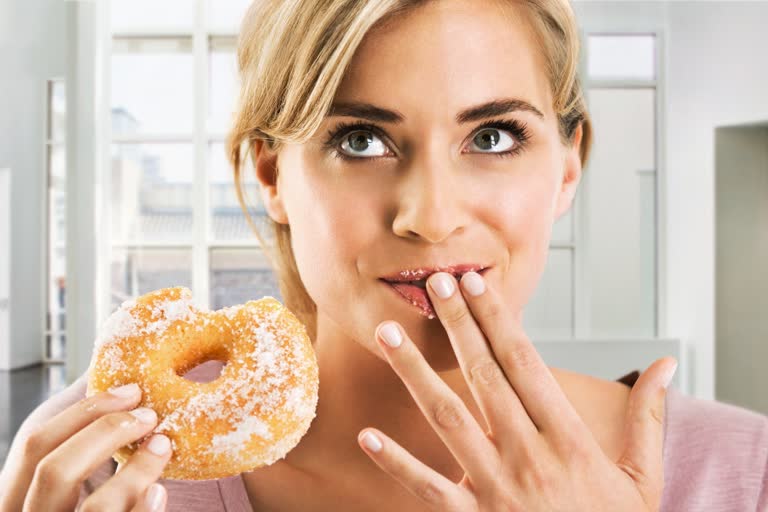Scientists from the University at Buffalo have shown how eating certain types of foods impacts the oral microbiome of post-menopausal women. They found that higher intake of sugary and high glycemic load foods — like doughnuts and other baked goods, regular soft drinks, bread and non-fat yogurts — may influence poor oral health and, perhaps, systemic health outcomes in older women due to the influence these foods have on the oral microbiome.
In a study in Scientific Reports, an open-access journal from the publishers of Nature, the UB-led team investigated whether carbohydrates and sucrose or table sugar, were associated with the diversity and composition of oral bacteria in a sample of 1,204 post-menopausal women using data from the Women’s Health Initiative.
It is the first study to examine carbohydrate intake and the subgingival microbiome in a sample consisting exclusively of post-menopausal women. The study was unique in that the samples were taken from subgingival plaque, which occurs under the gums, rather than salivary bacteria.
“This is important because the oral bacteria involved in periodontal disease are primarily residing in the subgingival plaque,” said study first author Amy Millen, PhD, associate professor of epidemiology and environmental health in UB’s School of Public Health and Health Professions. “Looking at measures of salivary bacteria might not tell us how oral bacteria relate to periodontal disease because we are not looking in the right environment within the mouth,” she added.
The research team reported positive associations between total carbohydrates, glycemic load and sucrose and Streptococcus mutans, a contributor to tooth decay and some types of cardiovascular disease, a finding that confirms previous observations. But they also observed associations between carbohydrates and the oral microbiome that are not as well established.
The researchers observed Leptotrichia spp., which has been associated with gingivitis, a common gum disease, in some studies, to be positively associated with sugar intake. The other bacteria they identified as associated with carbohydrate intake or glycemic load have not been previously appreciated as contributing to periodontal disease in the literature or in this cohort of women, according to Millen.
“We examined these bacteria in relation to usual carbohydrate consumption in post-menopausal women across a wide variety of carbohydrate types: total carbohydrate intake, fiber intake, disaccharide intake, to simple sugar intake,” Millen said. “No other study had examined the oral bacteria in relation to such a broad array of carbohydrate types in one cohort.
Also Read: Reasons for unintentional weight gain



